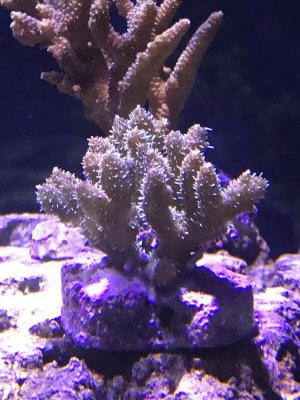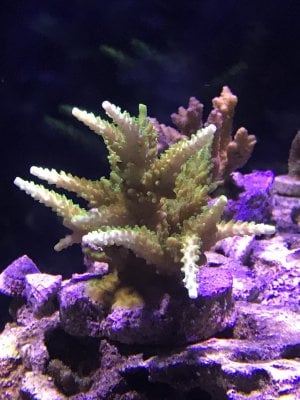- Joined
- Oct 13, 2016
- Messages
- 1,058
- Reaction score
- 540
I’ve kept many corals over the years attempted an acro in a 100 gallon 1 year old tank a few years back and failed miserably just curious why they require an “established tank” as I haven’t really been able to find a good explanation other than stable parameters but if anyone that has long term success would like to share I just setup a new 30 gallon tank (with water from my 4 year old system) a few months ago trying to get started with some softies rn but I LOVE acros and would like some later on or some tips for some harder corals long term success. Flow lighting everything just what works for you guys? I mostly have scans and zoas with a few oddballs right now thanks






















